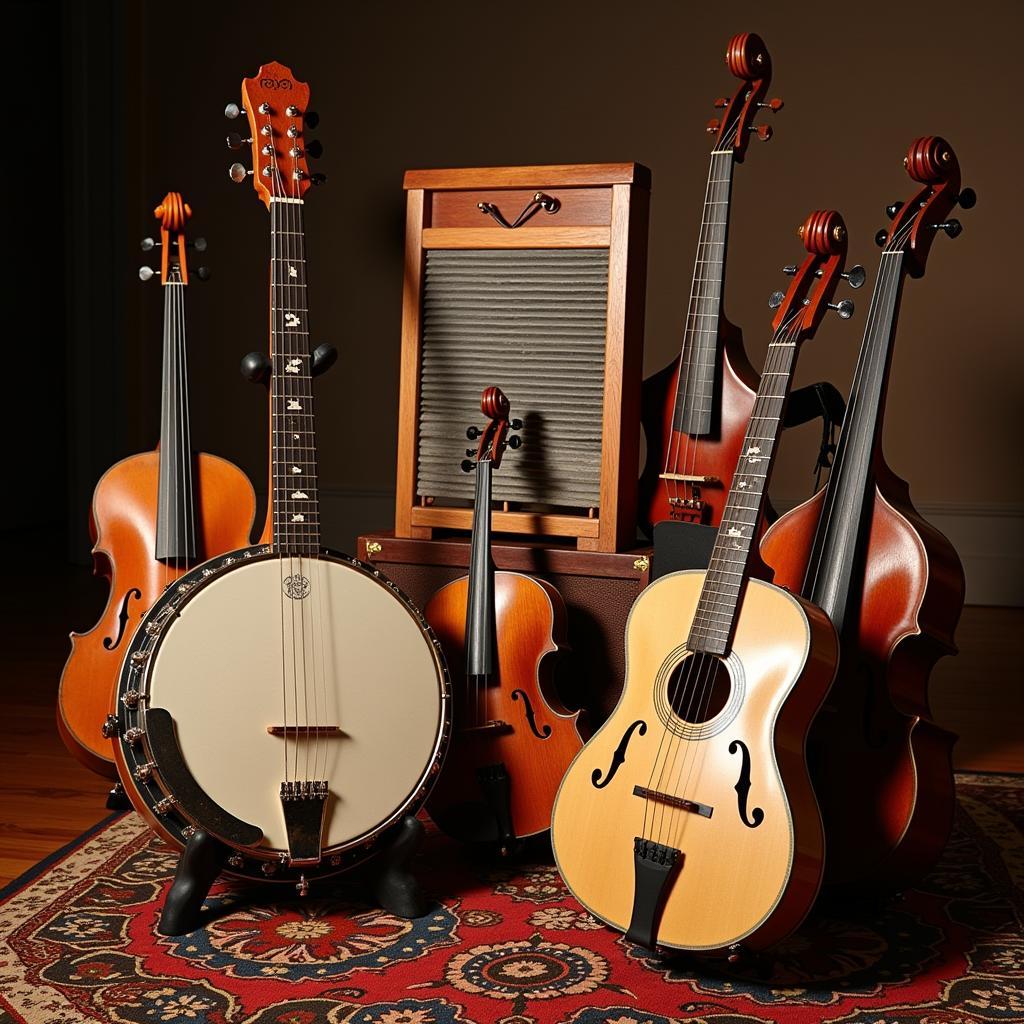Exploring the Rich Tapestry of African American Folk Music
African American Folk Music is a powerful expression of history, culture, and resilience. Born from the struggles and triumphs of a people, it reflects the diverse experiences of African Americans throughout history, from the fields of the South to the urban centers of the North. This musical tradition has shaped and been shaped by the social, political, and spiritual landscapes of the African American experience. It’s a vibrant tapestry woven with threads of sorrow, joy, hope, and resistance.
From spirituals to blues, work songs to gospel, the various forms of African American folk music capture the essence of a community. These songs tell stories of hardship and perseverance, of faith and freedom, and of the enduring human spirit. They are not just melodies and rhythms, but a testament to the power of music to transcend boundaries and connect generations. Learn more about other forms of expression like african american drama in literature.
The Roots of African American Folk Music: From Africa to America
African American folk music is deeply rooted in the musical traditions of West Africa. The rhythms, call-and-response patterns, and improvisational elements present in many African American musical forms can be traced back to the ancestral homelands. Forced migration and the brutal realities of slavery tragically disrupted cultural continuity, yet music served as a lifeline, preserving elements of African heritage and providing solace in the face of unimaginable hardship.
Spirituals: Songs of Hope and Resistance
Spirituals, emerging during the era of slavery, are a cornerstone of African American folk music. These songs, often coded with double meanings, served not only as expressions of religious faith but also as veiled messages of hope and resistance. They provided a sense of community and solidarity among enslaved people, offering a spiritual refuge in a world of oppression.
The Evolution of African American Folk Music in the 20th Century
The 20th century saw the continued evolution and diversification of African American folk music. The blues, born from the pain and hardship of the post-Reconstruction South, became a powerful voice for the African American experience. Work songs, sung in fields and on chain gangs, provided a rhythm to labor and a means of collective expression. And gospel music, with its soaring vocals and uplifting messages, became a source of strength and inspiration for communities facing discrimination and social injustice. You can explore a collection of african folk music songs for a deeper understanding of these genres.
The Blues: A Voice of Pain and Resilience
The blues, often considered a secular counterpart to spirituals, gave voice to the struggles and frustrations of African American life in the Jim Crow South. Artists like Bessie Smith and Robert Johnson became icons, their music resonating with audiences across the country and paving the way for future generations of musicians.
“The blues is not just a musical genre,” says Dr. Abena Quashie, a leading ethnomusicologist, “it’s a living testament to the human capacity to find strength and beauty in the face of adversity.”
Gospel Music: A Celebration of Faith and Community
Gospel music emerged as a powerful force in the early 20th century, blending elements of spirituals, blues, and hymns. It became a cornerstone of African American religious life, offering a message of hope and redemption in a world often marked by discrimination and inequality. Gospel choirs and soloists, with their powerful vocals and dynamic performances, became central figures in African American communities.
The Legacy of African American Folk Music
African American folk music continues to inspire and influence musicians and audiences around the world. Its impact can be heard in various genres, from jazz and R&B to rock and roll and hip-hop. The stories, rhythms, and melodies of this rich tradition have become an integral part of the global musical landscape.
How has African American folk music influenced other genres?
It has profoundly impacted numerous genres, notably jazz, blues, R&B, and even rock and roll. The call-and-response structure, rhythmic complexities, and emotional depth found in African American folk music have permeated these genres, shaping their sounds and lyrical content.
Professor Kwame Asante, a renowned historian of African American music, observes, “The influence of African American folk music is undeniable. Its legacy can be heard in the music of countless artists across genres and generations.” Exploring african american myths and legends can offer further insight into the cultural richness that informs this music.
 Various instruments used in African American folk music, including banjo, fiddle, and washboard
Various instruments used in African American folk music, including banjo, fiddle, and washboard
African American folk music is a powerful and enduring testament to the creativity, resilience, and spirit of a people. It is a musical journey through history, a celebration of culture, and a testament to the transformative power of music. As we continue to listen, learn, and appreciate this rich tradition, we gain a deeper understanding of the African American experience and its profound impact on the world. Learn more about African culture and symbols by visiting african american symbols.
FAQ
- What are the main characteristics of African American folk music?
- How did slavery influence the development of African American folk music?
- What is the difference between spirituals and gospel music?
- Who are some important figures in African American folk music?
- How has African American folk music impacted modern music?
- Where can I find resources to learn more about African American folk music?
- What are some examples of African American folk songs?
Other Questions and Related Articles
- What is the role of music in African American culture?
- How has African American folk music changed over time?
- Explore the connection between African music and African American folk music.
Need help? Contact us 24/7 at +255768904061, email [email protected], or visit us at Mbarali DC Mawindi, Kangaga, Tanzania.